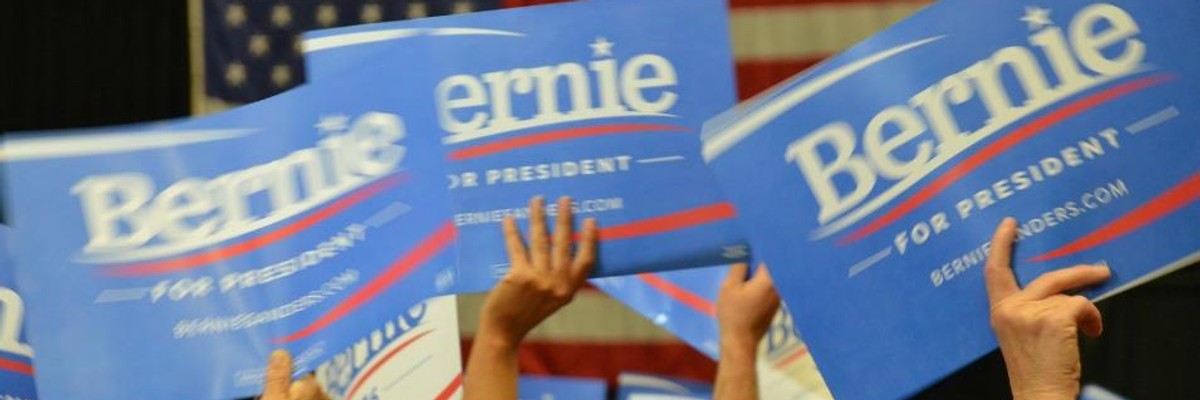In just a few short months, Bernie Sanders' campaign for U.S. president in 2016 has rapidly hit a number of significant milestones, from overflowing crowds at rallies to a quick rise in voter polls--and on Thursday, he reached another one: a $15 million fundraising haul.
While it's just a fraction of the $45 million that current Democratic party frontrunner Hillary Clinton raised in the same quarter--from April 30 to June 30--Sanders' financial boon is significant because the funds came from 250,000 donors, most of whom made small contributions online.
That signals the continued widespread support of Sanders' left-leaning, populist message calling for, among other things, "political revolution."
And as the Guardianpoints out, "Barack Obama attracted only 180,000 donors during the first quarter of his presidential campaign in 2007, which has been considered the benchmark for online fundraising by an insurgent candidate in modern presidential politics."
Unlike Clinton, who does much of her fundraising through private events and the Priorities USA Super PAC [Political Action Committee], Sanders has stayed true to his call for campaign finance reform and refused the use of a super PAC to raise funds.
Pulling in $15 million from small donors lends credence to a central platform of his campaign. The senator has spent his decades-long political career railing against "grotesque and obscene" wealth inequalities in the U.S. and has made economic reform one of the hallmarks of his call for political revolution.
During his campaign stop in Madison, Wisconsin on Wednesday night, Sanders drew an audience of 10,000 supporters, the largest crowd to turn out for any 2016 candidate yet--illustrating yet again how the U.S. senator from Vermont may not have as big a war chest as his rivals, but he has the voters.
"I am aware that my opponents will be able to outspend us. But we are going to win this election," Sanders told the crowd at the Veterans Memorial Coliseum. "They may have the money, but we have the people. And when the people stand together, we can win."
As some political commentators have noted, Sanders has another advantage over Clinton, one which may prove increasingly valuable throughout the election: authenticity.
Adam Green, co-founder of the Progressive Change Campaign Committee, told the Guardian, "Bernie Sanders is smartly taking advantage of the rising economic populist tide.... And the path to success for Hillary Clinton is to be bold and populist in her campaign platform."
And the New York Timeswrote in a feature published Friday:
When he came to Vermont in the late 1960s to help plan the upending of the old social order, the future presidential candidate Bernie Sanders brought with him the belief that the United States was starkly divided into two groups: the establishment and the revolutionaries. He was a revolutionary.
....[T]hrough his long evolution from outraged outsider to mainstream man in a suit, Mr. Sanders has remained true to his original message: sympathy for the downtrodden, the impoverished and the disenfranchised in the face of the rich and the powerful.

